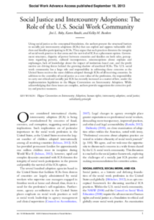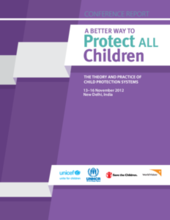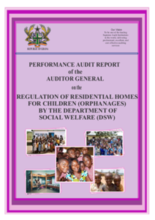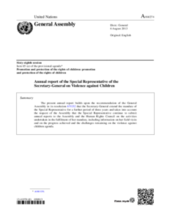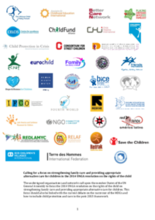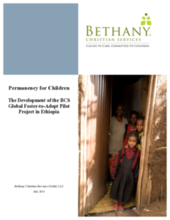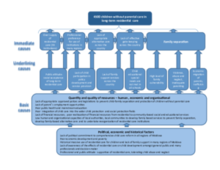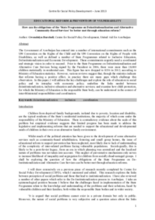Displaying 471 - 480 of 691
Using social justice as the conceptual foundation, the authors present the structural barriers to socially just intercountry adoptions (ICAs) that can exploit and oppress vulnerable children and families participating in ICAs. They argue that such practices threaten the integrity of social work practice in that arena and the survival of ICA as a placement option.
This report of a major conference held in New Delhi in November 2012 entitled “A Better Way to Protect ALL Children: The Theory and Practice of Child Protection Systems”, encapsulates the substantive content of the presentations and related discussion; provides an analysis and documents the journey; and suggest an agenda, or at least direction, for future work on Child Protection systems.
This audit was conducted to determine whether the Department of Social Welfare in Ghana was sufficiently regulating the operations of Residential Homes for Children (orphanages) to ensure the care and protection of children living in institutions.
In her annual report to the UN General Assembly, the Special Representative of the Secretary-General highlights the results of an expert consultation on violence in early childhood. The consultation highlighted the urgency of supporting families and caregivers in their child-rearing responsibilities and securing a responsive national child protection system to strengthen families’ capacity to raise young children in safe environments and prevent child abandonment and placement in residential care.
A coalition of over 40 international, regional and national NGOs and networks have issued a joint call to member States of the United Nations General Assembly (UN GA) to focus the 2014 Resolution on the Rights of the Child on strengthening family care and providing appropriate alternative care for children.
This report provides initial documentation of a pilot program launched by Bethany Christian Services in 2009 in Ethiopia. The pilot aims at moving children from institutional care to family-based care by developing alternative family care for non-relative children using a foster-to-adopt approach, working through a partnership between faith communities in Ethiopia and American faith congregations in the US.
This graphic provides a visual representation of the causal framework of children’s institutionalization in Moldova. It was developed as part of the USAID/DCOF-funded project “Protecting children in Moldova from family separation, violence, abuse, neglect and exploitation.”
This paper provides details of research into the gatekeeping system in Bulgaria for children under three and examples from recent Bulgarian and international practice. It suggests that gatekeeping could benefit from a social development orientation including activities to combat poverty and promote social inclusion through supporting community and family strengths.
This article describes the historical background and current situation of the child welfare system for children without parental care in Poland.
This paper presents an examination of the linkages between education and the deinstitutionalization of children in Azerbaijan. The paper explores the role of education in social policy and its interplay with economic policy; underlines the links needed between deinstitutionalization, inclusive education and alternative services; and examines how child protection can be understood in the context of inter-Ministerial responsibilities and coordination.

